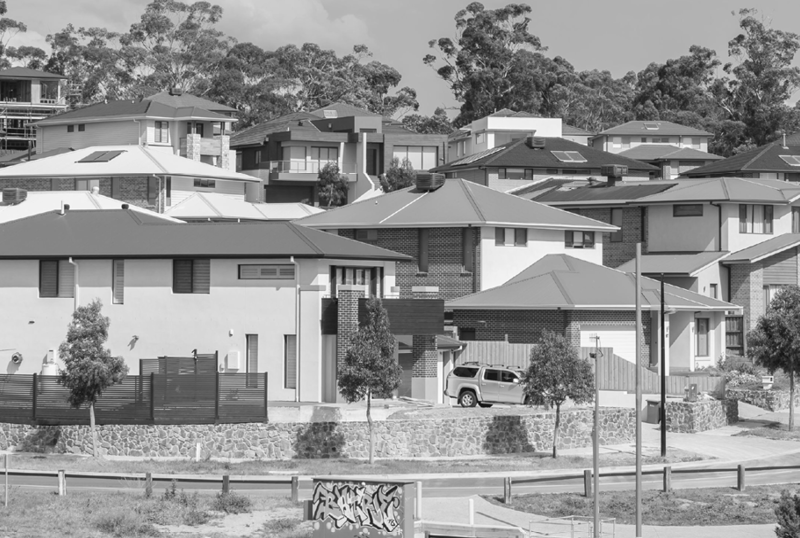While rising interest rates are dominating the headlines, they’re really a symptom of something bigger – but how exactly does inflation impact house prices?
While supply chain shortages, the ongoing war in Ukraine and the presence of a strong labour market are all factors contributing towards the highest inflation rate that we’ve seen in Australia since 1974, one thing is certain: everything is getting more expensive, and it’s largely thanks to sky high inflation.
Although most of us pay attention to interest rate changes, less people tend to pay attention to the factors that create high inflation – but is inflation high because of record breaking property prices, or is real estate more expensive because of rising inflation?
The Relationship Between Inflation And House Prices
In a nutshell, inflation is a term we use to describe the measurement of how much more expensive a set of goods and services has become over a certain period of time. To measure the average consumer’s cost of living – and therefore the current rate of inflation – government agencies will usually conduct surveys to identify a basket of commonly purchased items and track their cost over time, such as the price of rent, a mortgage, and even a loaf of bread.
For the last three decades, the Reserve Bank of Australia has set the ideal target range of inflation between 2-3%, with the end goal being to maintain price stability and full employment. Australia’s inflation rate, or Consumer Price Index (CPI), is currently sitting at 6.1%.
As making amendments to the cash rate is one of the few levers available to federal agencies to lower inflation, the Reserve Bank has been steadily rolling out increases to it over the last four months, with many more predicted to come.
As increases to the cash rate effectively force banks to lift their interest rates, and high inflation happens when an economy grows too fast, economists consider these changes to be a necessary evil in order to bring inflation back to target and to create a more sustainable balance of demand and supply in the Australian economy – so what does this mean for house prices?
Well, the theory is as simple as this: if borrowing money becomes more expensive, consumers become more conservative with how they spend it. With international travel, lockdown orders and record low interest rates over the last two years, the Australian real estate market prices skyrocketed to unforeseen heights, with demand far outstripping supply.
Now, almost all of those factors are things of the past, and house prices in the capital cities of Melbourne and Sydney are usually the first to feel any decreases instigated by interest rate hikes. In fact, this was arguably the end goal of the Reserve Bank, as house prices arguably needed to be brought back down to a more sustainable level.
Despite this, there’s growing concern linked to negative equity, where people took on higher mortgages than they would have liked to during the pandemic for fear of missing out. By purchasing a property at the height of the boom, this demographic risks being stuck with a home loan that is significantly higher than the value of their property.
However, it’s worth noting that it’s not all doom and gloom when it comes to real estate, as there are a number of other factors that are keeping house prices stubbornly high. Helping to offset the downside risk of higher interest rates are extremely tight labour markets, improving economic conditions and recovering migration rates – all of which will progressively add to housing demand
In the face of inflation and rising interest rates, should you be looking to sell your home or purchase a new one, enlisting the services of a free property advisor like ESPA can often be a game changer. As an example, your advisor would likely research the property, local agents, check the zoning, evaluate market conditions, and communicate clearly with you regarding all of your options – but where do you find one?
Take The Stress Out Of Selling Property
As a completely free service, Emergency Services Property Advisors provide property advisor services to Police, Fire, Ambulance and S.E.S personnel and their families right across Victoria.
Luke and the team at ESPA are passionate about providing support to some of Australia’s most valued public servants. Along with key industry insights, ESPA also works with a broad range of service providers linked to the real estate industry such as conveyancers, trades, legal practitioners and mortgage brokers.
If you are an emergency services worker looking to potentially buy or sell property in the future, please get in touch with Emergency Services Property Advisors today to discuss how we can turn your real estate dreams into reality, or call Luke directly on 0414 757 705.

